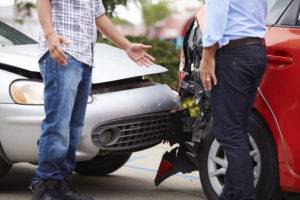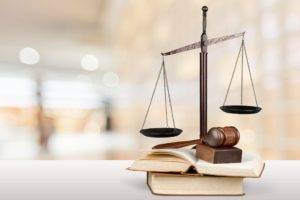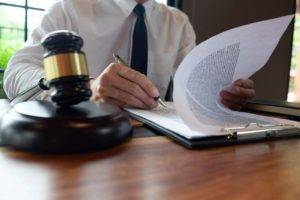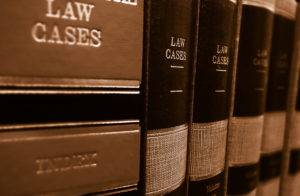Being able to prove that a property owner or manager was negligent in maintaining safe conditions is the key to having a successful slip-and-fall case in Florida. All property owners are obligated to keep their premises in reasonably safe condition to prevent accidents and subsequent injuries.
Florida property owners owe a duty of care to visitors to keep them safe. If their property is cluttered, dimly lit, in disrepair or in any other condition considered unsafe, it could cause a person to suffer a slip-and-fall accident and sustain an injury. Any visitor with a legal purpose to be on the property who experiences an accident and injuries has a right to file a slip-and-fall claim. However, the property owner or manager must be aware of the dangerous condition and must have taken measures to correct the problem.
Understanding the Duty of Care in Florida
In Florida and elsewhere, duty of care is part of the theory of negligence. According to the New York City Bar, when it comes to a slip-and-fall case, it means that the property owner or manager is responsible for ensuring that their premises are in reasonably safe condition to prevent visitors from having accidents that could cause injuries. They are expected to act in the same way that any other person would in the same or similar situation to prevent such disasters from happening.
Need free legal help in Florida?
We specialize in personal injury claims.

Establishing Liability in Florida
If you were injured in a slip-and-fall or any other accident in Florida, establishing liability is crucial as it’s the only way to prove your case. According to Injury Claim Coach, liability is legalese for responsibility. It means proving that an individual or business is directly responsible for the accident that caused your injuries. In slip-and-fall situations, the liable party is typically the property owner or manager. Depending on the circumstances, liability may be clear or unclear.
It’s also important to understand the role of the Florida property owner in maintaining a safe environment. This can help strengthen your case because it proves whether the property owner is, indeed, liable for your injuries.
The Role of the Florida Property Owner in Maintaining a Safe Environment
Property owners in Florida are required to maintain a safe environment on their premises. This means anything that could potentially cause danger to visitors should be cleared. Examples of dangerous conditions on a property are poor lighting, loose floorboards, improperly secured carpeting or rugs, broken stairs or handrails, wet or sticky floors, wet and slippery pavement outside of the property and clutter that poses trip hazards.
If the property owner or manager is already aware of any of these situations or is alerted to them, they must fix them to prevent an accident. If they’re unable to immediately fix the problem, they should place warning signs or cones or tape around the dangerous area.
Comparative Negligence in Florida
Florida follows the laws for comparative negligence in slip-and-fall and other personal injury situations. It’s important to understand comparative negligence and its impact on slip-and-fall cases.
Comparative Negligence and its Impact on Slip-and-Fall Cases
According to Justia, comparative negligence can reduce the amount of compensation an injured person requests after a slip-and-fall accident if they are found partially at fault. Under the law, a person can file a personal injury lawsuit if they are less than 50% at fault. In other words, if you were horsing around on a stairwell that had a broken step and tumbled, sustaining a sprained ankle, you might be deemed 40% at fault for your accident. If you were suing the property owner for $10,000 and your case is successful, you would only recover $6,000 of that amount.
Gathering Evidence
One of the most important parts of proving negligence in a slip-and-fall case is evidence. Different sources can help build the case and show how the accident happened and prove how you sustained your injuries. Surveillance footage and witness testimony are crucial in proving liability. Taking photos of the accident scene and the hazards that led to the incident are also strong pieces of evidence.
The Importance of Surveillance Footage and Witness Testimony in Proving Liability
Surveillance footage in the place where a slip-and-fall occurs can show in real time what took place. It may also show the dangerous conditions that caused the accident. If any witnesses were present at the time of the incident, their testimony could strengthen the case. These two forms of evidence can make a big difference in whether a slip-and-fall case is successful.
Taking Photographs of the Accident Scene and Hazards
Immediately after a slip-and-fall accident, photos of the scene and hazards are essential. Although it’s not always possible for an injured victim to take pictures after such a situation, they might be able to ask someone nearby to do it for them. Sometimes, injuries aren’t immediately apparent; adrenaline runs high and the victim has a burst of energy. In that situation, they can take photos of the accident scene and any hazards in the area themselves.
Need free legal help in Florida?
We specialize in personal injury claims.

Seeking Medical Treatment in Florida
After a slip-and-fall accident in Florida, seeking medical attention is crucial. You should understand the significance of seeking immediate medical treatment after such an incident and sustaining injuries and how medical expenses play a role in your personal injury claim.
The Significance of Seeking Immediate Medical Treatment for Slip-and-Fall Injuries
There’s more than one reason to seek immediate medical treatment for slip-and-fall injuries. First, it allows you to receive the care you need to address your injuries early on, which can help prevent them from worsening. Second, early medical treatment gives you evidence you can use in your case. If you were to wait to seek medical attention or avoid it altogether, it could compromise your ability to recover a sufficient settlement or have your case heard at all.
Understanding How Medical Expenses Play a Role in the Personal Injury Claim
After sustaining injuries in a slip-and-fall and receiving medical attention, you’ll have detailed medical records. You will also have medical expenses that show how much money you’ve spent out of pocket to cover your treatment. This can help when seeking a settlement in your case.
Time Limits in Florida
According to Florida Statute 95.11, you have up to two years from the date of your injuries to file a slip-and-fall lawsuit. Due to that statute of limitations, you must file your claim with the court within that time or your case will not be heard.
How Compensation Works in Florida
If you plan to file a slip-and-fall injury lawsuit in Florida, it’s important to know how compensation works in such a case. Certain factors contribute to the calculation of compensation you should know. It’s also helpful to know how insurance policies and coverage play a role, the role of a personal injury lawyer in navigating the legal process for slip-and-fall cases and the benefits of consulting with a Florida law firm that specializes in personal injury law.
Factors That Contribute to the Calculation of Compensation in Florida
Even before you file a slip-and-fall injury case, it’s crucial to know the factors that contribute to the calculation of compensation in Florida. Those factors include medical expenses (both current and future), lost income (both current and future), pain and suffering, loss of enjoyment of life, loss of services/consortium, permanent disability, punitive damages, relative severity of the injury and insurance coverage limits.
Medical Expenses (Both Current and Future)
Depending on the nature of your injuries and their severity, you might recover a higher amount of compensation largely due to your medical expenses. For example, if your injury is severe and permanent, it might mean you require continuous medical treatment for the rest of your life. This can dictate how much compensation you receive. Your current medical expenses are easier to determine; future expenses can be calculated based on your condition and the word of doctors.
Lost Income (Both Current and Future)
Injuries stemming from slip-and-fall accidents can be serious enough to require the victim to miss time from work as they recover. They can recover compensation for both current and future lost income if they cannot work for a specific period.
Pain and Suffering
Pain and suffering refers to the physical pain a person experiences after an accident and sustaining injuries. It’s included in non-economic damages in a personal injury case. The victim’s pain and suffering cannot be measured by any particular monetary amount, making it sometimes challenging to determine.
Loss of Enjoyment of Life
Loss of enjoyment of life is a non-economic damage you can claim in your slip-and-fall accident lawsuit. If your injuries have caused you to lose interest in things you once enjoyed doing or make it difficult or even impossible to do certain things, you have a valid claim.
Loss of Services/Consortium
If a person’s injuries after a slip-and-fall accident are so severe that they can no longer function normally as they once did, they can seek damages for loss of services and loss of consortium. Loss of services refers to an inability to contribute to household chores and other activities that help out their spouse and family members. Meanwhile, according to Cornell Law School’s Legal Information Institute, loss of consortium means that a person’s injuries are so severe that they render the victim unable to provide their spouse with physical love and intimacy. Loss of services/consortium are non-economic damages.
Permanent Disability
If you are permanently disabled because of your slip-and-fall injuries, you have the right to claim compensation for permanent disability. Your attorney will ensure that you receive what’s fair to cover the costs of your suffering and how the disability has and will continue to impact your everyday life.
Punitive Damages
Punitive damages are not awarded to make an injured plaintiff whole. Instead, they are given to the defendant for outrageous or egregious behavior in causing the victim’s injuries. There is no limit to the amount of compensation that might be awarded for punitive damages.
Relative Severity of the Injury
According to Science Direct, the relative severity of injury can help determine compensation in a slip-and-fall case. Injuries can be classified on a scale of 1 to 5 based on their severity, with 1 being minor and 5 being critical with an uncertain chance of survival. The more severe an injury, the higher the compensation.
Insurance Coverage Limits
Depending on the severity of the victim’s injuries, they might have to get the remainder of the settlement they seek directly from the defendant after a slip-and-fall. If the insurance coverage is insufficient to pay for the damages, the property owner might have to pay out of pocket to make up the remaining compensation.
How Insurance Policies and Coverage Play a Role
If a person suffers a slip-and-fall while visiting a property, the owner’s insurance policy applies to compensate them for their medical expenses and other damages. Typically, the insurance is enough to cover these expenses; insurance coverage can also protect the property owner from being sued directly. However, if the victim’s injuries are permanent and severe, insurance might not be enough, which means they would have to go that route and file a lawsuit.
Consulting with Personal Injury Attorneys in Florida
After suffering injuries in a slip-and-fall accident, it’s wise to consult with a Florida personal injury attorney. Although you might think you can go it alone in your case, there are things you should know. They include the role of a personal injury attorney in navigating the legal process for your case and the benefits of consulting with a law firm that specializes in personal injury law.
The Role of a Personal Injury Lawyer in Navigating the Legal Process for Slip-and-Fall Cases
Personal injury lawyers have the knowledge and experience necessary to handle slip-and-fall cases. They know what evidence is needed to prove you suffering injuries and can help determine the best way to proceed with your case.
The Benefits of Consulting with a Florida Law Firm That Specializes in Personal Injury Law
According to HG.org, there are notable benefits of consulting with a Florida law firm that specializes in personal injury law. They include knowledge of how to handle slip-and-fall and other injury cases, investigating when necessary, knowing what evidence is needed, knowing how to negotiate with insurance companies and sending demand letters. Attorneys who work at personal injury law firms also know how to conduct discovery and represent your case in trial if it doesn’t settle earlier.
Steps to Take Immediately After a Slip-and-Fall Accident
After a slip-and-fall accident, there are certain steps you should take immediately. They include seeking medical attention, taking photos, identifying witnesses, reporting the incident, documenting evidence and contacting a personal injury lawyer.
Seek Medical Attention
Immediately after a slip-and-fall accident, seeking medical attention is crucial. You might initially feel perfectly fine, but chances are you’ve been injured and your symptoms won’t show until later. The earlier you seek medical attention, the better your chances if you file a personal injury claim. It can also help mitigate your injuries.
Take Photos
Photos of the scene of a slip-and-fall accident are valuable pieces of evidence for your case. They can clearly show the dangerous condition on the property that caused the accident and your injuries and prove that the property owner or manager failed to correct the problem. According to Enjuris, you should aim to snap as many photos as possible to strengthen your case.
Identify Witnesses
Sometimes, slip-and-fall accidents have witnesses who saw the incident as it occurred. If this is the case for you, it’s important to speak with these people to get their names, contact information and statements as to what happened during the accident. Witnesses can significantly strengthen your case.
Report Incident
You should immediately report the incident after a slip-and-fall. If your accident occurred in a place of business, speak to someone in charge so that an accident report can be made. Many businesses have these forms in the event of such a situation. You can obtain a copy for your records and evidence.
Document Evidence
Documenting all the evidence you have is essential for your slip-and-fall case. Your medical records, lost wages, property damage and anything else that has a tangible cost should be documented and kept together along with photos, videos, witness statements and accident reports. Make sure that all your evidence is put in a place where they’re easily accessible to you at all times. You may also want to sort everything by specific category so you can more easily present it.
Contact a Personal Injury Lawyer
Finally, you should contact a personal injury lawyer about handling your case. Ask any questions that spring to mind to get expert answers. The attorney will also have ideas on how to best proceed with your slip-and-fall case and will do what’s necessary to ensure you get a favorable outcome and satisfactory settlement.
Frequently Asked Questions
What Is the Average Payout for a Slip-and-Fall in Florida?
There’s no set average payout for a slip-and-fall accident in Florida because each case is unique. However, depending on the circumstances, you can expect anywhere from around $45,000 to $850,000 in your settlement.
How Long Does a Slip-and-Fall Case Take to Settle in Florida?
Some Florida slip-and-fall cases take a few months to settle. Others might take a few years depending on the situation and the case’s complexity.
How Much Compensation for Slipping on Wet Floor?
Many slip-and-fall cases involving wet floors settle for compensation ranging between $10,000 to $50,000.
Does Florida Pay for Pain and Suffering?
According to Enjuris, Florida pays for pain and suffering in injury cases.
How Are Personal Injury Settlements Paid Out in Florida?
Florida allows personal injury settlements to be paid out in two ways: lump sum or structured settlement. Most are paid out in a single lump sum.
How Long Until I Get My Settlement Check After I Agree in Florida?
After you reach an agreement on a personal injury case in Florida, you should expect your settlement check within four to six weeks.
Can I Sue My Employer for a Slip-and-Fall in Florida?
According to Enjuris, you cannot sue your Florida employer for a slip-and-fall accident. Instead, you must go through the workers’ compensation system. If you are denied workers’ comp, you can file a petition with the Division of Administrative Hearings so a judge can rectify the situation.
What Is the Statute Of Limitations for Personal Injury Slip-and-Fall in Florida?
The statute of limitations for slip-and-fall accidents and personal injury, in general, in Florida is two years.
What Are the Elements of a Slip-and-Fall in Florida?
The elements of a slip-and-fall in Florida are based on negligence. They include duty of care, breach of duty, causation and damages.
Can You Claim if You Slip on a Wet Floor?
If you slip on a wet floor, you can claim damages as long as the elements of negligence are present.
Can I Claim Compensation for a Fall?
In many cases, if you suffer a fall on someone else’s property, you can file an injury claim for compensation. However, it must be established that the property owner or manager is liable for your injuries.
Need free legal help in Florida?
We specialize in personal injury claims.






